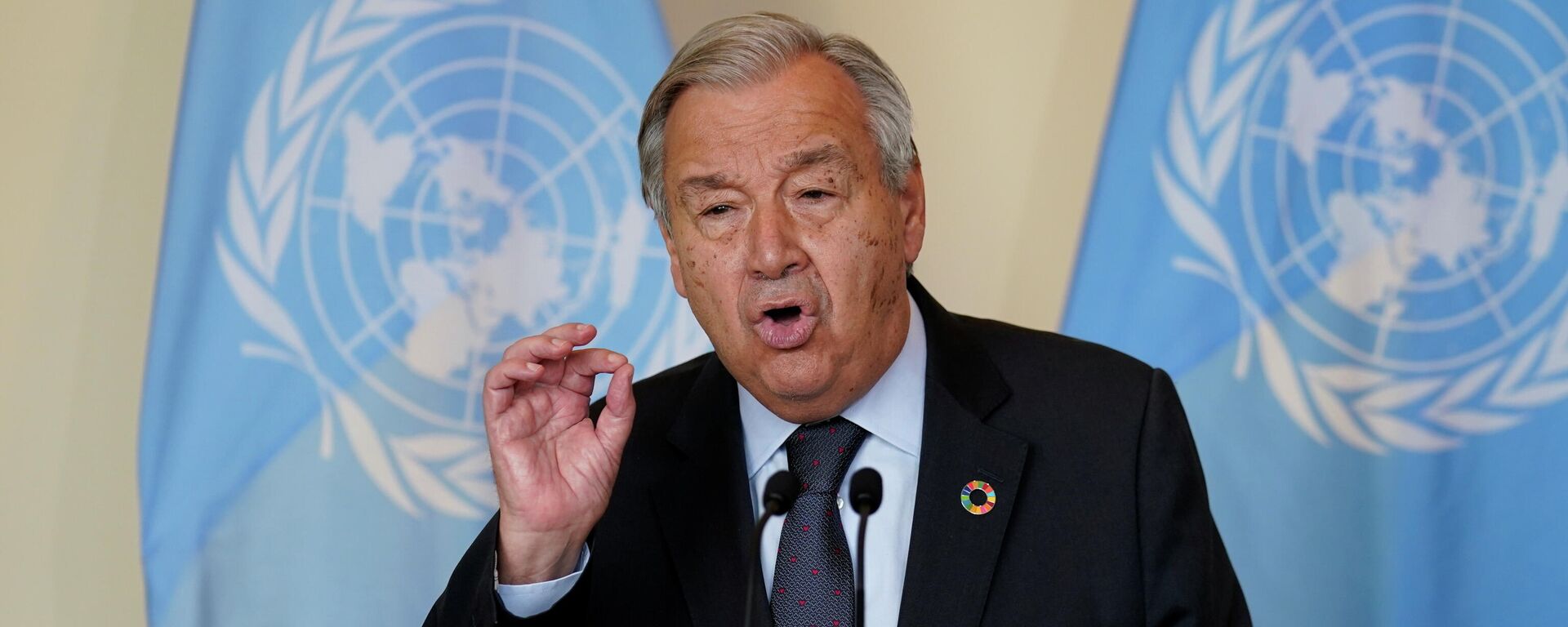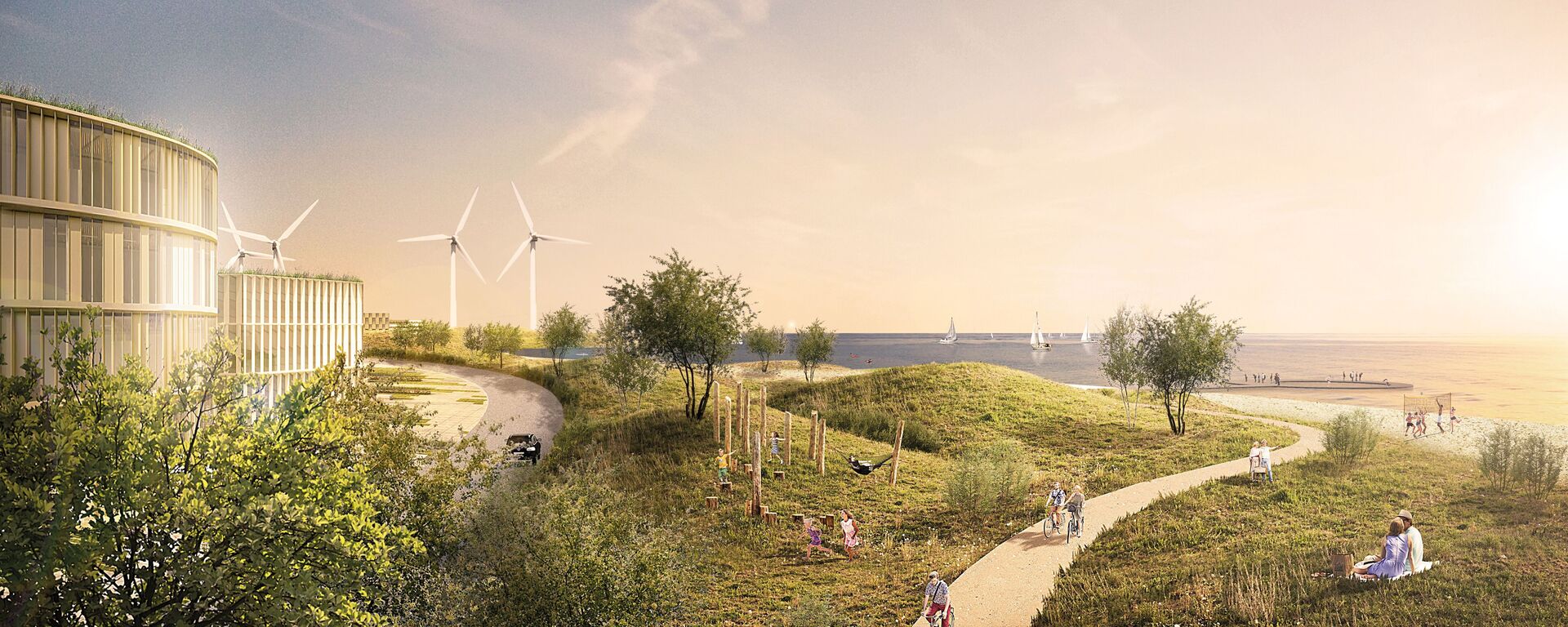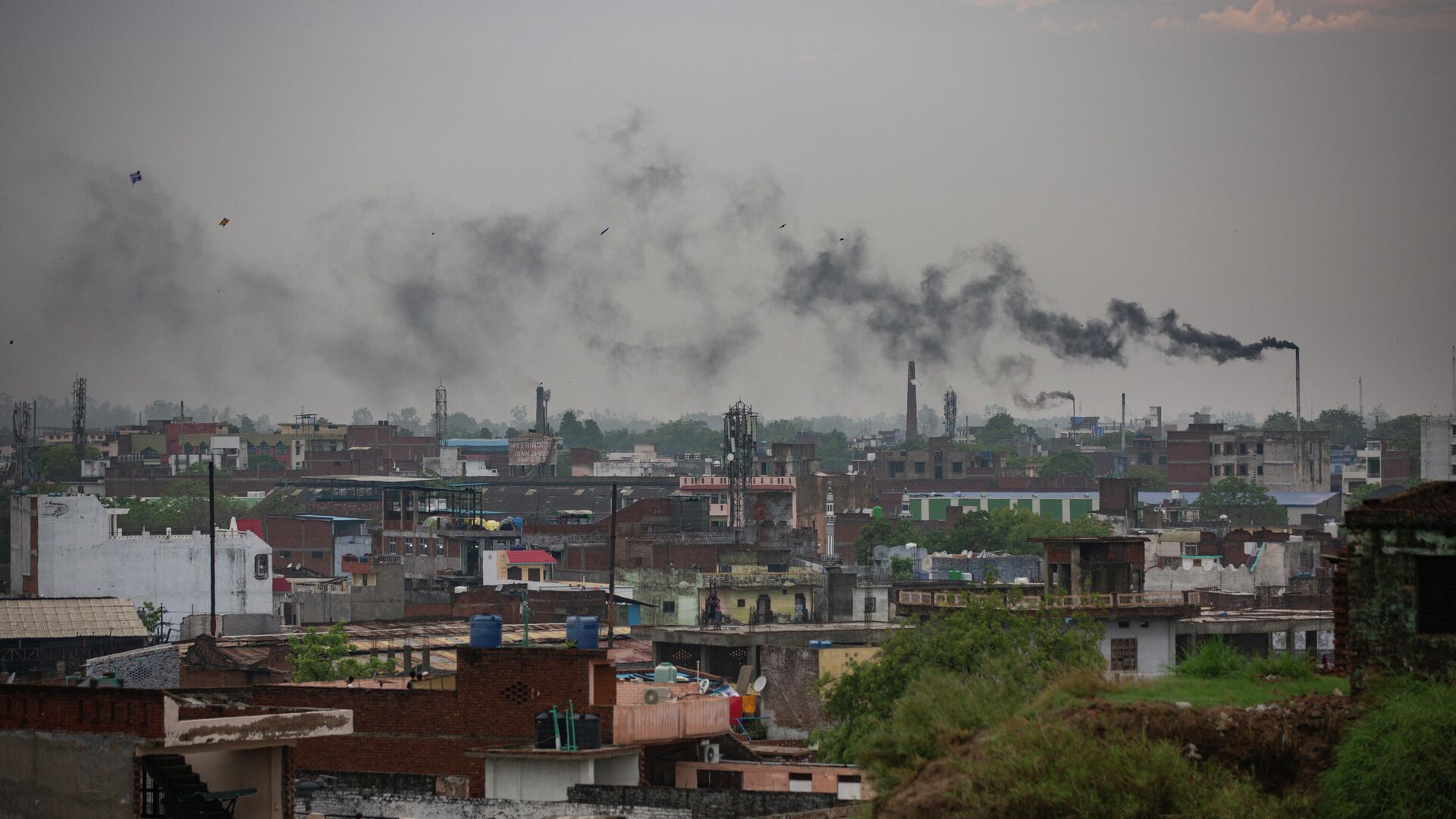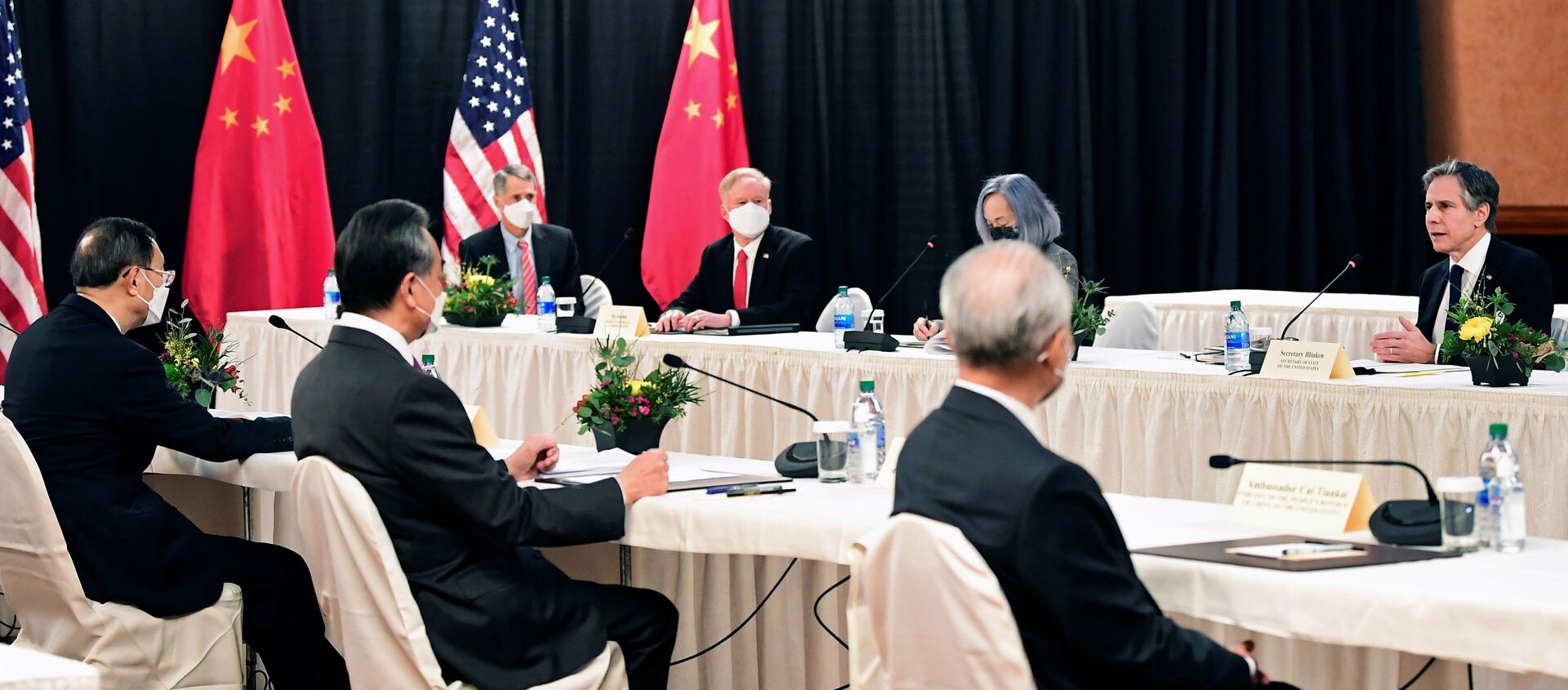https://sputnikglobe.com/20211028/india-rejects-net-zero-emissions-target-calls-for-more-carbon-space-from-developed-nations-1090268840.html
India Rejects Net-Zero Emissions Target, Calls for More 'Carbon Space' From Developed Nations
India Rejects Net-Zero Emissions Target, Calls for More 'Carbon Space' From Developed Nations
Sputnik International
Leaders from 120 countries will convene for the COP26 climate conference in Glasgow next week, where they will discuss ways of reducing global carbon... 28.10.2021, Sputnik International
2021-10-28T07:50+0000
2021-10-28T07:50+0000
2021-10-28T07:50+0000
united kingdom (uk)
boris johnson
glasgow
narendra modi
climate change
china
united nations framework convention on climate change (unfccc)
paris climate deal
https://cdn1.img.sputnikglobe.com/img/07e5/0a/1c/1090270958_0:59:3072:1787_1920x0_80_0_0_2c48ba6da13ea0ef21e1b1d7b3f78e8c.jpg
India has rejected calls to reduce its greenhouse gas emissions to net zero by 2050 at the upcoming COP26 climate summit in the United Kingdom, as the South Asian country called for more "carbon space" from the developed world to cater to its aspiring population.Officials pointed out on Wednesday that India was the "best-performing country" on climate action in the G20 bloc. They stressed New Delhi is well on its way to meeting the goal of reducing emissions intensity by 33 to 35 percent by 2030, which was one of India's "Nationally Determined Contributions (NDC)" for the post-2020 period at the Paris conference on 2 October 2015.As per the Climate Change Performance Index 2021, India is among the top 10 performers in the world.On Wednesday, British Prime Minister Boris Johnson described China and India as "outliers" in the fight against climate change, as he said that 17 nations in the G20 bloc have already committed to reducing their carbon emissions to zero by 2050.Johnson reckoned that the upcoming 26th Conference of Parties (COP26) to the United Nations Framework Convention on Climate Change (UNFCCC) in Glasgow (31 October-12 November), which will be attended by 120 national leaders, is "unbelievably important" yet "difficult".Chinese President Xi Jinping will not be attending the summit, as per reports.Indian Prime Minister Narendra Modi will be attending a "high-level segment" of COP26, titled the World Leaders' Summit in Glasgow, as per an official press release.The West has long argued that China and India need to do more to curb their greenhouse emissions. Developing countries, however, fear that heeding these demands could affect their economies, which are still not on par with the western world on indices such as per capita GDP.Indian officials say that the onus of mitigating climate change lies more with developed nations, as greenhouse gas emissions from the South Asian nation "made negligible contributions to the global emissions that have caused climate change".Officials also say that India was well ahead of meeting another of its NDCs, which is to "achieve about 40 percent cumulative electric power installed capacity from non-fossil fuel-based energy resources by 2030"..India's renewable energy programme is being powered by solar, wind, and hydro energy, officials say.Further, Indian officials say that the forest and mangrove tree cover in the country had increased by 13,031 square kilometres and 235 square kilometres between 2015 and 2019.Creating an "additional carbon sink" of 2.5 billion to 3 billion tonnes through additional forest cover is also another NDC proposed by India in 2015.'Woefully Inadequate' Financing From Developed CountriesOfficials complain that India's shift towards renewable sources of energy to contribute to the fight against climate change was largely being funded by domestic sources, and that international sources of financing remained "woefully inadequate"."More importantly, much of the finance made available by these sources, whether grants or loans, have perforce to be accompanied by co-financing that India has to generate internally, often from public funding", added the officials.The issue of making more funds available to help the 1.3 billion-strong country fight climate change will be taken up during the upcoming conference in Glasgow.
https://sputnikglobe.com/20210920/un-chief-calls-for-decisive-action-to-avert-climate-catastrophe-ahead-of-glasgow-summit-1089247785.html
https://sputnikglobe.com/20210320/china-us-agreed-to-create-bilateral-working-group-on-fighting-climate-change---reports-1082398728.html
https://sputnikglobe.com/20210908/us-will-assist-latin-america-to-scale-up-green-energy-capacity-to-70-by-2030-john-kerry-says-1088886920.html
united kingdom (uk)
glasgow
china
Sputnik International
feedback@sputniknews.com
+74956456601
MIA „Rosiya Segodnya“
2021
News
en_EN
Sputnik International
feedback@sputniknews.com
+74956456601
MIA „Rosiya Segodnya“
Sputnik International
feedback@sputniknews.com
+74956456601
MIA „Rosiya Segodnya“
united kingdom (uk), boris johnson, glasgow, narendra modi, climate change, china, united nations framework convention on climate change (unfccc), paris climate deal
united kingdom (uk), boris johnson, glasgow, narendra modi, climate change, china, united nations framework convention on climate change (unfccc), paris climate deal
India Rejects Net-Zero Emissions Target, Calls for More 'Carbon Space' From Developed Nations
Leaders from 120 countries will convene for the COP26 climate conference in Glasgow next week, where they will discuss ways of reducing global carbon emissions. China (28 percent) is presently the largest contributor of greenhouse gases, followed by the US (14 percent), European Union (around 10 percent), and India (nearly 7 percent).
India has rejected calls to reduce its greenhouse gas emissions to net zero by 2050 at the upcoming
COP26 climate summit in the United Kingdom, as the South Asian country called for more "carbon space" from the developed world to cater to its aspiring population.
Officials pointed out on Wednesday that India was the "best-performing country" on climate action in the G20 bloc. They stressed New Delhi is well on its way to meeting the goal of reducing emissions intensity by 33 to 35 percent by 2030, which was one of India's "Nationally Determined Contributions (NDC)" for the post-2020 period at the Paris conference on 2 October 2015.
"Even for the pre-2020 period, where India had no mitigation obligation, India achieved 24 percent reduction in emission intensity of its Gross Domestic Product by 2016 over 2005 levels, in line with its voluntary declaration (at the Paris Climate Conference in 2015)", officials said.
As per the Climate Change Performance Index 2021, India is among the top 10 performers in the world.
On Wednesday, British Prime Minister Boris Johnson described China and India as "outliers" in the fight against climate change, as he said that 17 nations in the G20 bloc have already committed to reducing their carbon emissions to zero by 2050.

20 September 2021, 17:14 GMT
Johnson reckoned that the upcoming 26th Conference of Parties (COP26) to the United Nations Framework Convention on Climate Change (UNFCCC) in Glasgow (31 October-12 November), which will be attended by 120 national leaders, is "unbelievably important" yet "difficult".
Chinese President Xi Jinping will not be attending the summit, as per reports.
Indian Prime Minister Narendra Modi will be attending a "
high-level segment" of COP26, titled the World Leaders' Summit in Glasgow, as per an official press release.
The West has long argued that China and India need to do more to curb their greenhouse emissions.
Developing countries, however, fear that heeding these demands could affect their economies, which are still not on par with the western world on indices such as per capita GDP.
Indian officials say that the onus of mitigating climate change lies more with developed nations, as greenhouse gas emissions from the South Asian nation "made negligible contributions to the global emissions that have caused climate change".
"India's per capita emissions are 60 percent lower than the global average (0.6 tonnes of oil equivalent compared to 1.8 tonnes globally)", Indian officials said.
"Despite having around 18 percent of the global population, India consumed only 3.5 percent of the overall emissions prior to 1990, and since then 4.84 percent till 2017", they also pointed out.
Officials also say that
India was well ahead of meeting another of its NDCs, which is to "achieve about 40 percent cumulative electric power installed capacity from non-fossil fuel-based energy resources by 2030"..
"India is implementing one of the largest renewable energy expansion programmes with a target of achieving 175 Gigawatt (GW) of renewable energy capacity by 2022 and later up to 450 GW", they said.
India's renewable energy programme is being powered by solar, wind, and hydro energy, officials say.
"Moreover, the generation from renewable energy sources has doubled between 2014-15 and 2018-19 while the generation from non-renewable sources has increased by 19 percent during the same period", they pointed out.
Further, Indian officials say that the forest and mangrove tree cover in the country had increased by 13,031 square kilometres and 235 square kilometres between 2015 and 2019.
Creating an "additional carbon sink" of 2.5 billion to 3 billion tonnes through additional forest cover is also another NDC proposed by India in 2015.
'Woefully Inadequate' Financing From Developed Countries
Officials complain that India's shift towards renewable sources of energy to contribute to the fight against climate change was largely being funded by domestic sources, and that international sources of financing remained "woefully inadequate".
"The internationally available climate finance to India remains skewed towards mitigation rather than adaptation, and towards concessional loans instead of grants", they claimed.
"More importantly, much of the finance made available by these sources, whether grants or loans, have perforce to be accompanied by co-financing that India has to generate internally, often from public funding", added the officials.

8 September 2021, 14:47 GMT
The issue of making more funds available to help the 1.3 billion-strong country fight climate change will be taken up during the upcoming conference in Glasgow.






